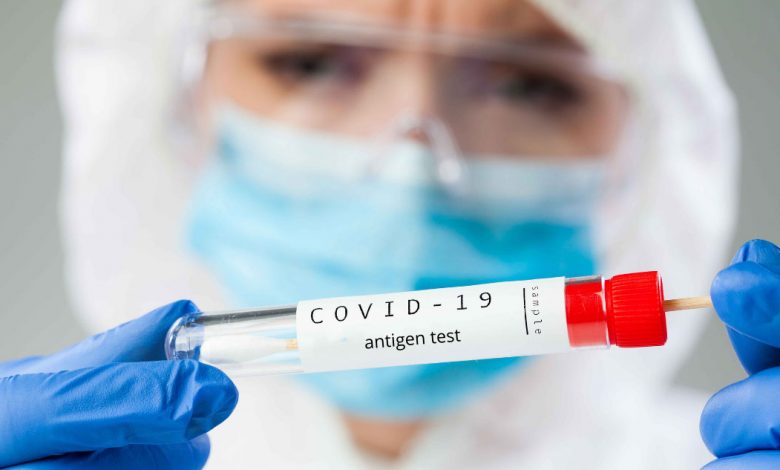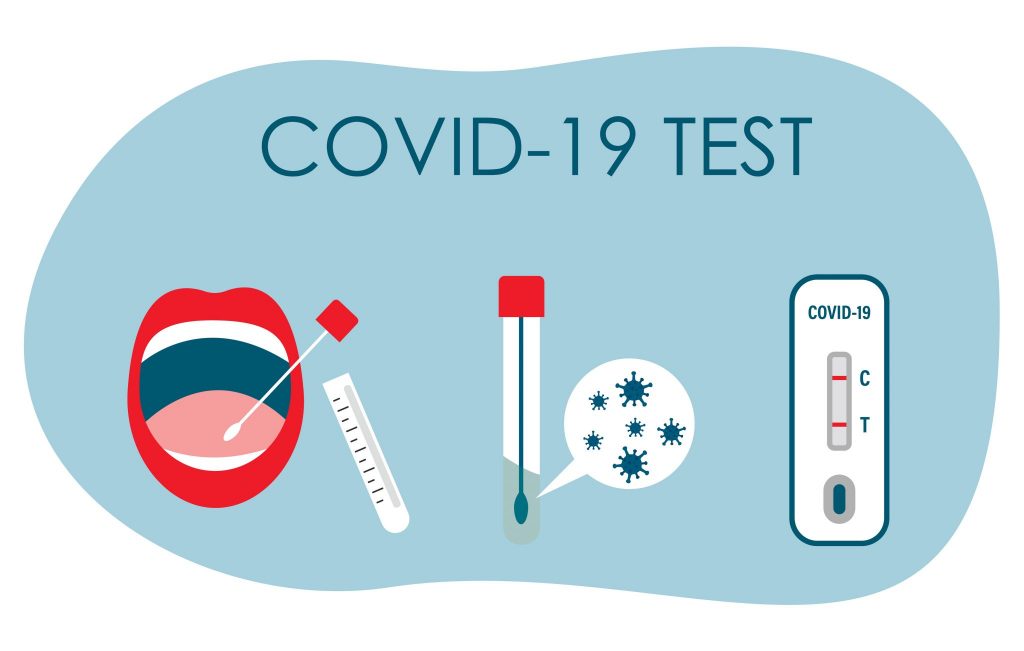Which Types of Covid test do you Need when you Travel Abroad?

With many across the UK now in the well-established routine of taking lateral flow tests at home twice a week to test for coronavirus, it’s easy to assume that we know how testing for the virus works and how best to protect ourselves. However, as the country moves forward into recovery phases from the Covid-19 pandemic and attempts to get back to ‘normal’, the types and amounts of tests available are increasing in scope and availability – and those required for international travel can vary.
When traveling abroad, test requirements for each country and territory differs. What does not is the requirement for re-entry into the UK, where private tests provided by companies such as Medicspot must be purchased and taken to admit individuals back into the country. NHS tests should not be used under any circumstances for the provision of travel for non-essential purposes abroad.
The different types of Covid-19 tests

There are many different types of coronavirus test available, but the two main ones in the UK presently are Lateral Flow tests and PCR tests.
Lateral Flow tests are currently available free from the UK government for adults who don’t have any symptoms but are likely to be around other people and so would like to rule out any infection. Lateral Flow tests deliver a rapid result in less than thirty minutes and are an antigen test. They’re not the most effective tests available but can give an indication of the likelihood of coronavirus infection in asymptomatic carriers. Lateral Flow tests are taken through the insertion of a swab into the throat and nose.
PCR (Polymerase Chain Reaction) tests work in the same way as Lateral Flow tests, but are kept more sterile and can only be analysed in a full laboratory. For this reason, these are the tests used at drive-in and walk-through test centres to be taken by those who are displaying at least one symptom of Covid-19. Results are usually delivered within 24-48hrs, and those who have undergone a PCR test must self-isolate until a negative result is received.
There are some tests that include derivative technologies from PCR testing, such as LAMP (Loop Mediated Amplification) testing. These tests are based on the testing of saliva but are currently not available for mainstream use and are only found in clinical and research settings.
Antibody tests are not strictly Covid-19 tests as they do not detect current infection, but instead can detect the presence of the antibodies left behind by a previous infection in the user.
The UK: Entry requirements

The UK currently has testing requirements in place for entry based on the UK Government’s traffic light system for travel. This traffic light categorisation list is updated every 3 weeks with any urgent changes introduced as and when required, so should be constantly monitored.
Those returning from a Green List country must complete a PCR test with a negative result no longer than 72 hours prior to travel to the UK, and book and take a further PCR test on day 2 after arrival.
Those returning from an Amber List country must complete a PCR test with a negative result no longer than 72 hours prior to travel to the UK and then isolate for 10 days. Within these 10 days two further PCR tests must be taken, on days 2 and 8. An early release test can be taken no sooner than day 5 and will allow for quarantine to end if it returns negative.
Those ‘double jabbed’ having received both doses of a coronavirus vaccine will not have to isolate or take a day 8 test upon return from a Green or Amber List rated country from the 19th July 2024.
Those returning from a Red List country must complete a PCR test with a negative result no longer than 72 hours prior to travel to the UK and then isolate for 10 days in a government-approved facility. Further PCR tests must be taken on days 2 and 8 of isolation, and return as negative. There is no early release option for anyone travelling from or through a Red List territory.
As the new Johnson & Johnson single injection inoculation is rolled out across the UK, the emphasis on the phrase ‘double jabbed’ will fall away and instead the focus will be on travellers being ‘fully vaccinated’. A single dose of this new vaccine will count as such for evidencing purposes.
Elsewhere in the world: Entry requirements

The above-mentioned testing requirements are for entry to the UK, but every country and territory has its own rules and regulations. Many countries require a negative test result to be produced upon entry as well as the normal self-isolation rules for Britons. To keep up to date on the latest restrictions and requirements, travellers are advised to keep in touch with their travel agent and monitor the Foreign, Commonwealth and Development Office (FCDO) advice online. Travellers should be sure to check information regularly as it is likely to be updated often, and should not depart if they do have not have sufficient evidence required to enter another country.
As with entry to the UK, those travelling abroad should not use NHS tests to serve as proof of no coronavirus infection. Instead, test kits should be purchased from a private provider.
It is worth noting that the individual quarantine and PPE rules vary not just between countries and territories, but also towns and cities. Countries with slower vaccination rollout programs are more likely to have stringent regulations in place and in many cases, these are stricter than the UK — so information on the rules that are to be enforced upon arrival must also be understood. In the case of those travelling with medical exemptions to the British restrictions, expert advice should be sought before departure as often such dispensations do not directly translate.
We can all enjoy a summer of travel if done safely, so get tested, get your evidence, and get going!